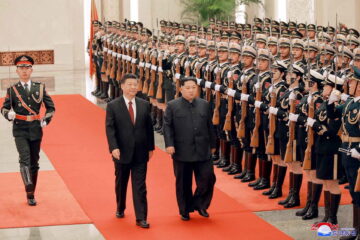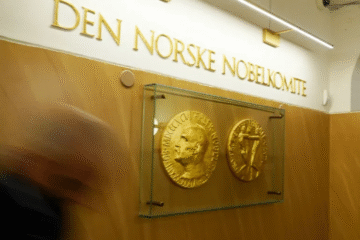Are we Moving Away from NEOLIBERALISM?
What you want to understand… 🤔
- What is neoliberalism?
- How and why did we adopt this model?
- Are we currently witnessing the end of neoliberalism? What role did Covid-19 play?
- Which alternative model could replace neoliberalism?
I. What is neoliberalism?
The neoliberal ideology emerged in a context where liberalism was declining after the Great Depression of the 1930s. At the time, Keynesian policies appeared as the popular solution to the crisis. Liberalism refers to economic policies promoting free trade, a more flexible labour market and an enlarged liberty for entrepreneurs. On the opposite, Keynesianism is based on state interventionism to foster consumption and secure employment as a way to increase Gross Domestic Product (GDP). This model also relies on regulations, especially on financial markets. In 1947, the Mont Pelerin Society, which gathered intellectuals such as Friedrich Hayek and Milton Friedman, strongly supported an ideology balancing liberalism and state interventionism. This neoliberal ideology would give the state the role of creating a market society that promotes individual freedom.
However, the meaning of the term “neoliberalism” evolved to describe policies fighting state intrusion in economic affairs. According to this ideology, government actions should be minimal and confined to protecting contracts, fostering free trade agreements and market opening, and bailing out banks and firms in time of crisis so as to preserve neoliberalism. Therefore, we can define neoliberalism as an economic model that promotes free-market capitalism. It is based on liberalism, the private ownership of the means of production and a permanent search for profit. That’s why the defenders of neoliberalism advocate for deregulation, liberalisation and privatisation. They believe in individual responsibility and oppose public social programs that are funded by taxation. Indeed, neoliberalism also includes austerity because, as we will see, it was implemented after a period of crisis in the 1980s. Politicians decided to cut public spending and as a result reduced social programs. Neoliberalism is also associated with the financialisation of every aspect of the economy that is characterised in particular by the importance of the “shareholder value” as a mode of corporate governance. Besides, we witness the empowerment of the rentier class whose benefits are more and more disconnected with the “real economic world”. Furthermore, neoliberalism doesn’t prevent the concentration of power and the creation of monopolies by firms that, legally, are treated almost like human beings.
II. How was neoliberalism adopted?
Neoliberalism emerged in the second half of the 20th century because some of its cultural underpinnings became prominent in the mindset of our societies. Among these underpinnings, we find Calvinism which is a branch of Protestantism that emerged in the 16th century. This doctrine emphasises the fact that one’s success depends on one’s individual efforts (individualism). One’s success is measured in terms of one’s production of economic wealth. Economic growth, resulting from work, should be a sacred goal. Besides, according to Calvinism, inequalities are natural and are the consequence of God’s will. The ideology of neoliberalism is also rooted in the theory of social Darwinism developed by Herbert Spencer during the 19th century. Social Darwinism applies the concept of natural selection to social sciences. Indeed, competition should be the driver of economic dynamics because it will foster progress and result in long-term positive effects for the entire society. Therefore, this natural and efficient evolutionary process, that ensures the survival of the fittest, shouldn’t be distorted by welfare programs and charity that would be counterproductive for the whole species/economy. Scientism, which appeared in the 19th century, constitutes one of the bases of neoliberalism. It promotes human control through science over almost everything, including Nature. Neoliberalism also believes in the withdrawal of the state from economic affairs because it would hinder the natural and efficient laws of the market that drive the rational, selfish and utility-maximising behaviour of the Homo-economicus that we are.
Neoliberalism became popular among decision-makers as of the end of the 1970s and the 1980s with figureheads like the US President Ronald Reagan or the British Prime Minister Margaret Thatcher. In fact, following the two oil shocks of 1973 and 1979 and the end of the Bretton Wood monetary system (Jamaica Accords of 1976), the global economy became more and more unstable and experienced a period of staglation characterized by a stagnation of economic growth associated with price inflation. This context of crisis favoured the emergence of neoliberalism. In her book “The Shock Doctrine: The Rise of Disaster Capitalism” (2007), Naomi Klein underlines the fact that a crisis was necessary to lead to a rationalization of policies and allow neoliberal ones to be implemented. Indeed, in normal circumstances, it is particularly difficult for politicians to support this model because they would face a strong resistance from the population that is attached to public services like health care, pensions, education or unemployment benefits. However, following the 1970s shocks and the multiple crises of the 1980s and 1990s, some states like Canada adopted neoliberal policies using a rhetoric promoting austerity to deal with debt crises and prevent the country from going bankrupt. This context of uncertainty and economic difficulties resulted in the Washington consensus (1989) that prescribed economic policies based on fiscal discipline, state withdrawal from economic affairs, privatization, deregulation and trade liberalisation. These policies were applied in particular by international organisations like the World Bank and the International Monetary Fund (IMF) that granted loans to countries in difficulties in exchange for an alignment of their economic model on the Washington consensus’ prescriptions.
Such a shift of paradigm was characterised by broad movements of privatisation, managerialisation, marketization and commodification of nearly everything. In fact, between the 1980s and 2004, over a trillion-dollar worth of state-owned firms were privatised. It is linked with the fact that the involvement of the IMF in a given economy gave credibility to the latter which made investors less anxious about spending their money in this economy. This privatization wave was noticeable in various sectors of the economy from hospitals to prisons including armed forces and schools. Corporations have become increasingly powerful such that their revenues exceed those of states: in 2015, 70 of the 100 entities in the world with the highest revenues were transnational corporations. This privatization movement is accompanied by an increasing managerialisation. It emphasises individual responsibility: responsibility to educate oneself, responsibility to take care of your own health and responsibility to find a job on your own. We can thus notice a shift from the welfare state to the workfare state. The latter for instance would only grant unemployment benefits if one actively seeks a job and keeps on educating oneself to improve one’s skills. It is the idea that men should only rely on their individual efforts to improve their situation. With neoliberalism came the idea that markets were the solution to all our problems. A commodity being something that is designed to be sold on a market, we can notice a commodification of almost everything: labour, money, nature, education, health, culture… Therefore, nowadays everything has a value and can be traded on a market.
III. What would be required to speak of the end of neoliberalism?
After the financial crisis of 2008 and the ensuing long-term economic difficulties, we thought that neoliberalism was discredited and wouldn’t survive. Nonetheless, so as to mitigate this crisis, neoliberal policies were implemented. As a matter of fact, central banks resorted massively to unconventional monetary policies like quantitative easing in order to bail out financial institutions. Moreover, states once again resorted to austerity like in Greece in 2013 during the Euro crisis.
I believe that we will be able to speak of the end of neoliberalism when there will be a paradigm shift. For instance, in order to cope with the excesses of liberalism in the beginning of the 20th century, Keynesianism took over and lasted until it reached its limits in the 1970s. It was then replaced by neoliberalism. Economic models succeeded each other due to crises that revealed their excesses and limits. The current crisis that started in 2008 has highlighted the flaws of neoliberalism that caused not only a financial and economic crisis but also a political, social and psychological crisis on top of the environmental crisis that was looming for decades. According to the British writer and political activist George Monbiot, a new political and economic restoration narrative is needed in order not to leave a power vacuum in a period of disorder and inequalities. There is a necessity to enter a new era that will offer perspective of prosperity and well-being. George Monbiot recommends a politics of belonging in which people reclaim political and economic power and organise into communities. However, the risks of such a model lie in the potential nationalist and populist drifts that a rhetoric revolving around identity and community would imply.
Furthermore, I would advocate, like Thomas Piketty in “Capital in the Twenty-First Century” (2017), for a shift from prioritizing capital revenues to prioritizing labour revenues. This paradigm shift would certainly mark the end of the neoliberal era since it would regulate the ever growing financialisation of our society, foster wealth produced in the “real economic world” and hamper the privatization of our economies. It would also allocate a bigger share of the decision-making process to workers, thus turning away from the “shareholder value” mode of corporate governance and replacing it with the “stakeholder value” mode of governance.
IV. Did the covid-19 lead to the end of neoliberalism?
In December 2020, the Swedish Finance Minister Magdalena Andersson announced the end of neoliberalism as a result of the COVID-19 crisis. Let’s take a look at the reasons why she made such a statement.
First of all, most governments chose not to comply with fiscal austerity and increased public spending in order to provide safety nets for their population. For example, the UK and the French governments developed furlough schemes to cover around 80% of employees’ revenues. In the US the debate over universal basic income was even revived. Private enterprises also called on states to bail them out. One of the consequences of such high public spending is a dramatic rise of the debt-to-GDP ratio. States will have great difficulties bearing this burden, thus they may have to levy more taxes to increase their revenues and bring more regulations in order to ensure that capital remains in the national economy.
Furthermore, we witnessed a tendency promoting re-localisation and re-appropriation of strategic national assets that had been privatised. This tendency goes against the neoliberal dogma of opening markets to free competition. It is a way to ensure independence vis-à-vis countries with cheaper and larger workforces like China that has taken advantage of globalisation and the segmentation of production processes.
Another development of the current crisis that may indicate that we are reaching the end of neoliberalism is that we are moving away from the celebration of individualism. Indeed, in the current context it is no longer possible to delegate responsibilities to individuals, it is states that organise national and international solidarity. We have also witnessed the failure of social Darwinism as a way to foster progress and ensure the welfare of society as a whole. As a matter of fact, the logic of herd immunity was rapidly abandoned by countries that believed in its efficacy against the virus while waiting for a vaccine to be produced. It was rejected as a policy that explicitly seeks to get rid of those who represent a burden for the fiscal budget.
We can also wonder whether, once the COVID-19 crisis will be gone for good, states will strive to come back to the business-as-usual situation. Yet state interventionism seems to be bound to remain since events such like this one are also bound to repeat themselves.
Besides, the end of economic neoliberal policies may translate into the political arena where we have already started witnessing more and more populist movements rising to power and then infringing on individual freedoms…
This crisis was particularly interesting from an ecological point of view since we realised that in an emergency in which human lives are at stake, we are able to suspend activities with negative impacts on the environment. We can see this crisis as an opportunity to reshape societies around values like solidarity, respect and restraint from excesses.



1 Comment
The European Union: how does it work ? - geopol-trotters · 23 June 2022 at 3:49 pm
[…] a US rise to hegemonic power and a necessity for Europe to find a new balance of power. Besides, neo-liberalism was spreading at the time. It resulted in the creation of free-trade areas in South-America […]